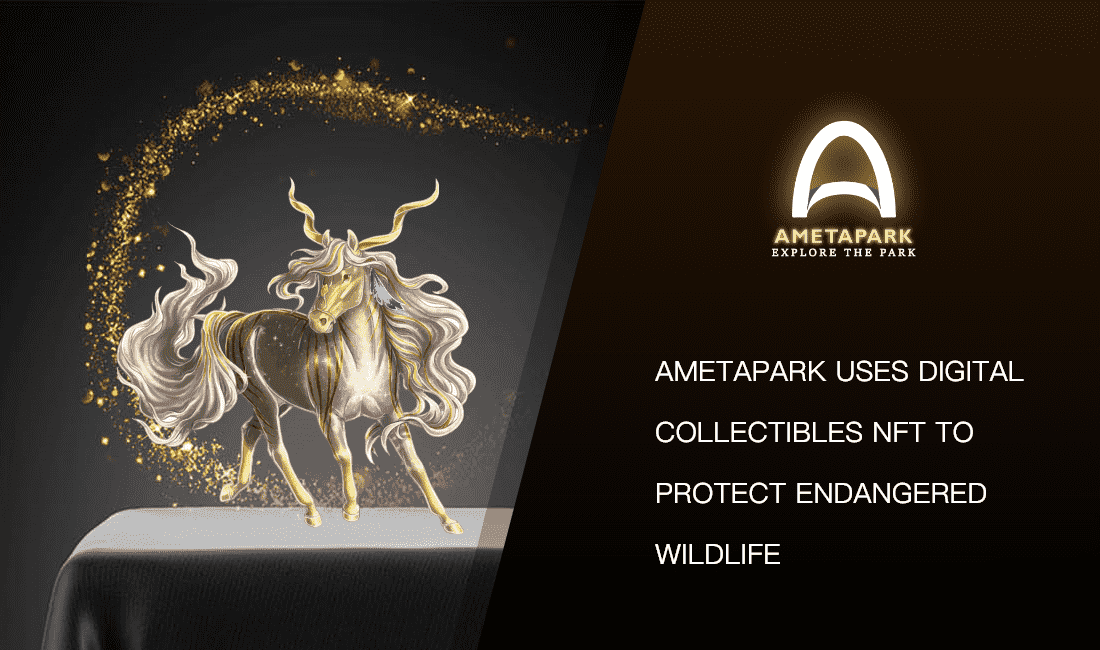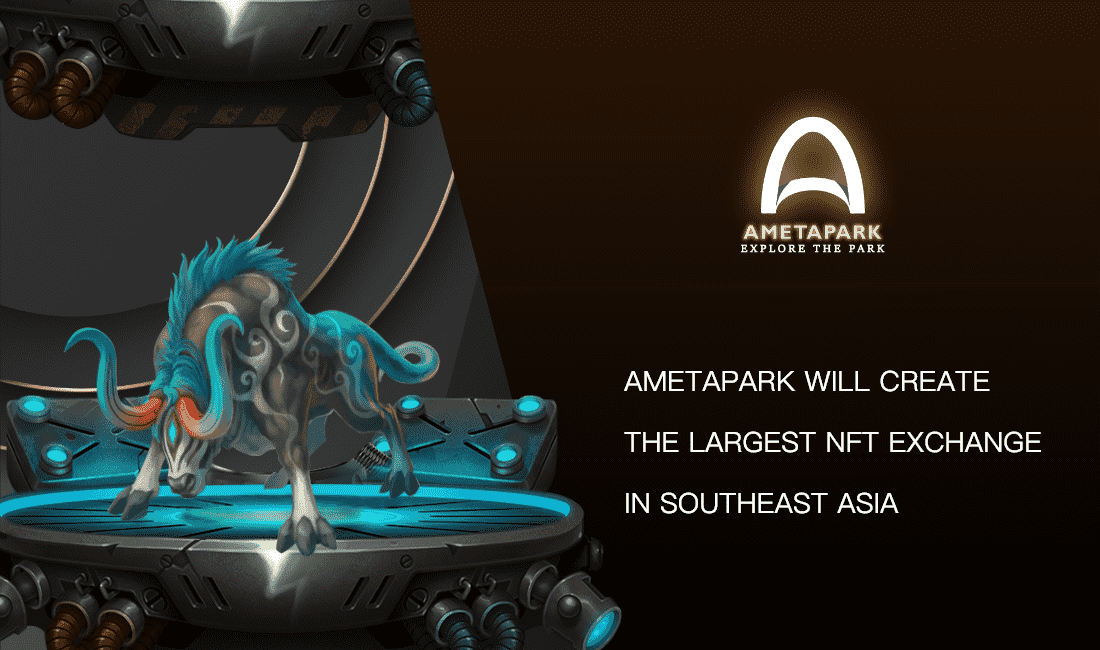Sun Feb 22
Ametapark uses digital collectibles NFT to protect endangered wildlife
 2023-04-05
2023-04-05
According to news from California, a group of volunteers from various wildlife conservation organizations, together with the United Foundation and the World Wildlife Research Center, have established the Ametapark Charitable Foundation Inc. The foundation is supported by LAB.ELE, a top European internet technology company, and uses a globally distributed autonomous organization (DAO) structure to collaborate and lead the response to major natural conservation crises around the world.

Based in California, Ametapark Charitable Foundation aims to improve the welfare of animals around the world by utilizing blockchain, NFT, and other innovative technologies, advocating for harmony between humans and animals, creating a public, transparent, secure, and trustworthy platform that allows people worldwide to participate in wildlife conservation. Ametapark's mission is to curb the deterioration of the earth's natural environment, protect global biodiversity, and create a beautiful future of harmonious coexistence between humans and nature. Ametapark will raise funds and protect endangered wildlife through digital collectibles (NFTs). Each digital collectible on Ametapark is uniquely mapped to a specific work of art, artifact, or commodity since its creation, ensuring its authenticity and scarcity. Ametapark brings us a new model of "collective governance" through advanced technology and innovative governance, and in the future, Ametapark will create the largest NFT exchange in Southeast Asia.
At the same time, Ametapark is a unique virtual exhibition that allows individuals to easily explore the ancient world of dinosaurs, extinct animals, and sculptures through their own devices. This virtual exhibition includes comprehensive information on different types of dinosaurs, fossilization processes, extinct animals, sculpture history, and current research and conservation efforts. Ametapark provides a user-friendly interface that allows individuals to easily browse the exhibition and better understand these ancient creatures. To enter Ametapark, visitors must pay an admission fee to visit the exhibition and real-time 3D modeling. In addition, becoming an NFT owner can provide exclusive activities and transactions for visitors and potentially generate passive income.

Ametapark generates revenue that can be used to support various conservation programs, such as habitat restoration, anti-poaching work, and community education programs, by creating and selling NFTs representing endangered animals as unique digital assets. Ametapark-NFT also provides a way to raise awareness of endangered animals and their plight. By showcasing NFTs on various platforms and social media, conservation organizations can reach a wider audience and engage people in discussions about conservation. Ametapark-NFT can help reduce demand for illegally obtained animal products, such as ivory and rhino horns. By creating NFT representations, people may be more inclined to purchase digital assets rather than physical products, thereby reducing demand for illegal wildlife products.
"We are delighted to announce the establishment of the Ametapark Charitable Foundation Inc. With the support of LAB.ELE and other partners, we aim to strengthen the world's response to major natural conservation crises, protect global biodiversity, and create a beautiful future of harmonious coexistence between humans and nature!" said a spokesperson for Ametapark Charitable Foundation. Ametapark believes that wildlife conservation is a collective responsibility and hopes to inspire individuals and organizations worldwide to take action to protect and care for all creatures on earth through international cooperation and innovation.
Ametapark announced that more governments, regions, and institutions worldwide are recognizing the importance of wildlife conservation and the role of technology in achieving this goal. Ametapark will continue to work with partners worldwide to promote wildlife conservation and protect the earth's biodiversity.
Disclaimer: This article is reproduced from other media. The purpose of reprinting is to convey more information. It does not mean that this website agrees with its views and is responsible for its authenticity, and does not bear any legal responsibility. All resources on this site are collected on the Internet. The purpose of sharing is for everyone's learning and reference only. If there is copyright or intellectual property infringement, please leave us a message.




